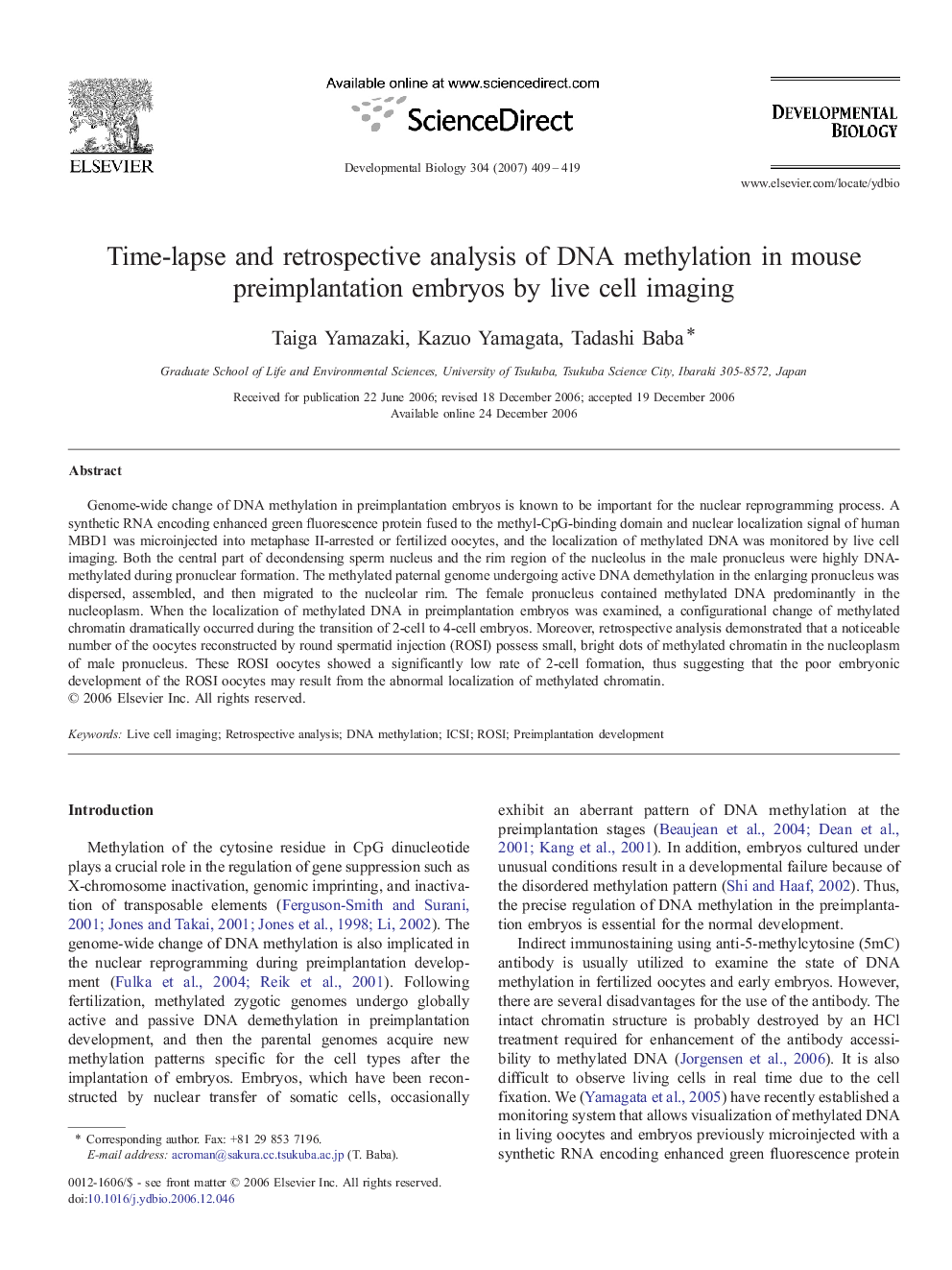| Article ID | Journal | Published Year | Pages | File Type |
|---|---|---|---|---|
| 2175420 | Developmental Biology | 2007 | 11 Pages |
Genome-wide change of DNA methylation in preimplantation embryos is known to be important for the nuclear reprogramming process. A synthetic RNA encoding enhanced green fluorescence protein fused to the methyl-CpG-binding domain and nuclear localization signal of human MBD1 was microinjected into metaphase II-arrested or fertilized oocytes, and the localization of methylated DNA was monitored by live cell imaging. Both the central part of decondensing sperm nucleus and the rim region of the nucleolus in the male pronucleus were highly DNA-methylated during pronuclear formation. The methylated paternal genome undergoing active DNA demethylation in the enlarging pronucleus was dispersed, assembled, and then migrated to the nucleolar rim. The female pronucleus contained methylated DNA predominantly in the nucleoplasm. When the localization of methylated DNA in preimplantation embryos was examined, a configurational change of methylated chromatin dramatically occurred during the transition of 2-cell to 4-cell embryos. Moreover, retrospective analysis demonstrated that a noticeable number of the oocytes reconstructed by round spermatid injection (ROSI) possess small, bright dots of methylated chromatin in the nucleoplasm of male pronucleus. These ROSI oocytes showed a significantly low rate of 2-cell formation, thus suggesting that the poor embryonic development of the ROSI oocytes may result from the abnormal localization of methylated chromatin.
